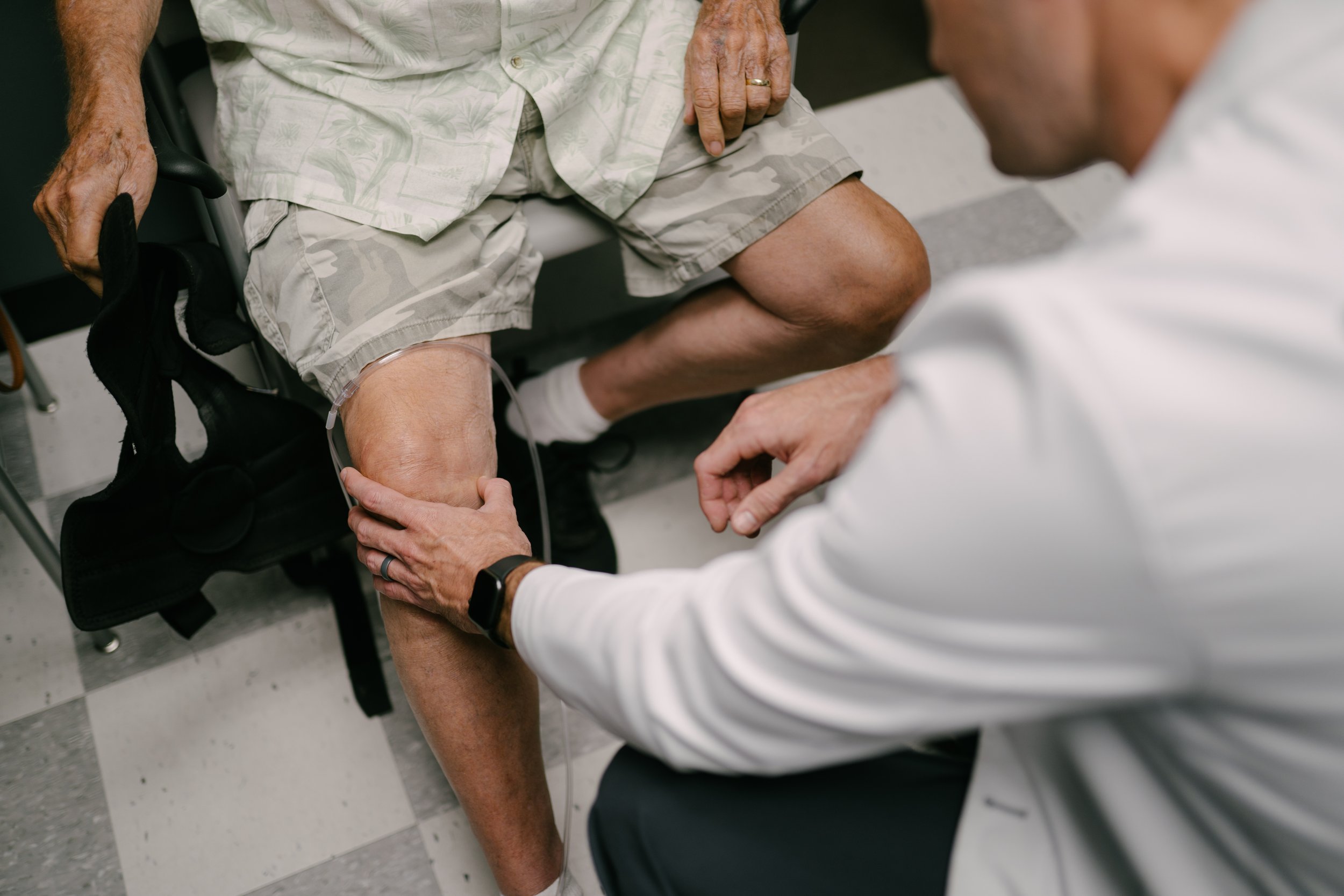
knee Arthritis in San Antonio
knee Arthritis
What is Knee Arthritis?
Knee arthritis is characterized by inflammation and deterioration of the knee joint cartilage. Knee cartilage is made up of smooth, slippery tissues that provide cushioning and allow your knee bones to move smoothly together. As this cartilage wears away, the bones rub together, resulting in swelling, stiffness, and pain. The following symptoms may be associated with knee arthritis:
Pain
Stiffness
Swelling
Reduced knee joint range of motion
Grating or popping sensations
Muscle weakness
Instability in the knee
Knee bending or straightening difficulty
Knee popping, creaking, or grinding
Causes of Knee Arthritis
Knee arthritis often results from a combination of factors, including genetics and environment, including injury and lifestyle choices. While there are several factors that contribute to knee arthritis, the exact cause varies depending on the specific type. The following are some of the most common causes:
Age
Previous knee injuries
Overuse of joints
Inflammatory conditions
Genetics
Bone deformities
Types of Arthritis
Osteoarthritis: Most people with knee arthritis suffer from this type of arthritis. As your bones wear down, the protective cartilage that cushions them wears down. Consequently, the knee becomes painful, stiff, and swollen. Osteoarthritis can affect any joint in the body, but is most common in the knees.
Rheumatoid Arthritis: This type of arthritis occurs when the body's immune system attacks the joint linings, including the knee. If left untreated, it can cause inflammation, pain, and joint damage.
Post-Traumatic Arthritis: After a serious knee injury, such as a fracture or ligament tear, this type of arthritis can develop. Over time, arthritis can develop as a result of the injury to the knee joint.
Diagnosis of Knee Arthritis
An evaluation of a patient's medical history, physical examination, imaging tests, and sometimes laboratory tests is typically required to diagnose knee arthritis.
Treatment of Knee Arthritis
An effective knee arthritis treatment should relieve pain, improve function, and slow the progression of the disease. The treatment options for arthritis will vary based on the severity of the disease and individual factors such as age, level of activity, and overall health. Treatment options can include:
Medications: Over-the-counter pain relievers, such as ibuprofen or acetaminophen.
Physical Therapy: Using physical therapy, knee muscles can be strengthened, flexibility improved, and pain reduced.
Steroid Injections: Corticosteroids can be injected directly into the knee joint to reduce inflammation and relieve pain.
Other Injections: Knee arthritis symptoms may also be relieved by injections other than corticosteroids. Platelet-rich plasma (PRP) injections can enhance healing by lubricating joints and reducing pain. Hyaluronic acid injections can also help relieve joint pain.
In some cases, it may be necessary to consider surgery if conservative treatments are ineffective or if there is significant joint damage. In this case, the following surgeries may be performed:
Arthroscopic Procedure: Surgical removal of damaged tissue.
Osteotomy: Realigns the bones around the knee.
Knee Replacement: May be performed to replace the damaged joint entirely.
Our Locations
-

Alamo Heights
Address: 423 Treeline Park, Suite 350, San Antonio, TX 78209
-

Westover Hills
Address: 11212 State Highway 151, Medical Plaza 1, 2nd Floor, Suite 200, San Antonio, TX 78251
-

Medical Center
ADDRESS: 2833 Babcock Rd, Tower 2, Suite 435, San Antonio, TX 78229
-

Boerne
ADDRESS: 138 Old San Antonio Rd, Suite 302, Boerne, TX 78006
-

Castroville
Address: 346 County Road 4712, Castroville, TX 78009
-

Piedras
ADDRESS: 4100 E. Piedras, Suite 165, San Antonio, TX 78228
-

Schertz
Address: 6051 FM 3009, Suite 260, Schertz, TX 78154


